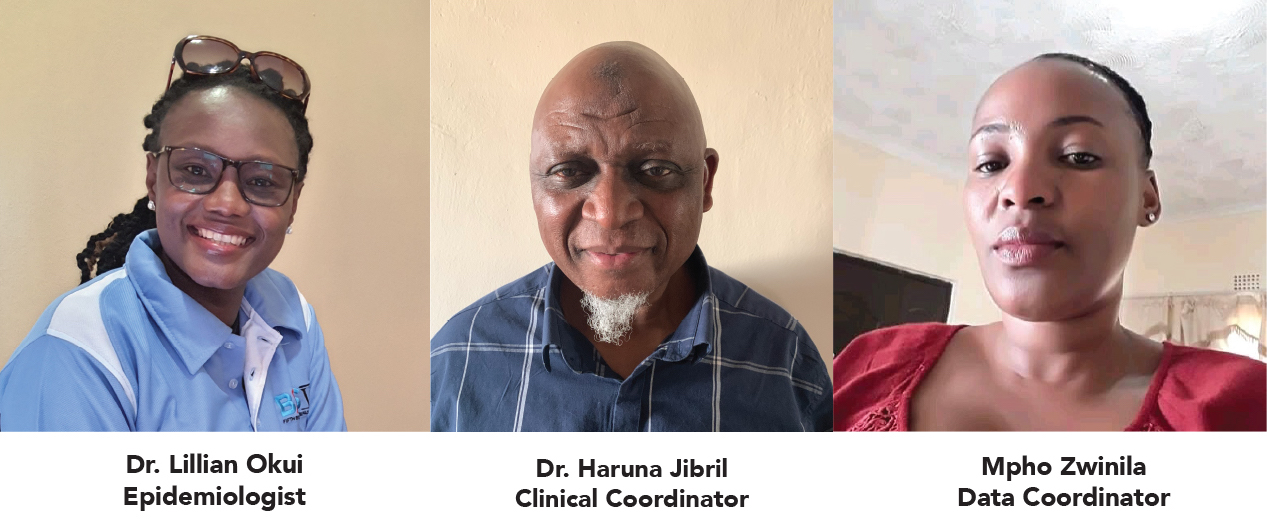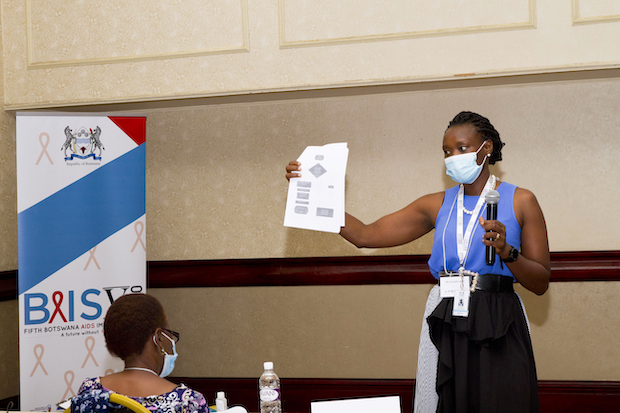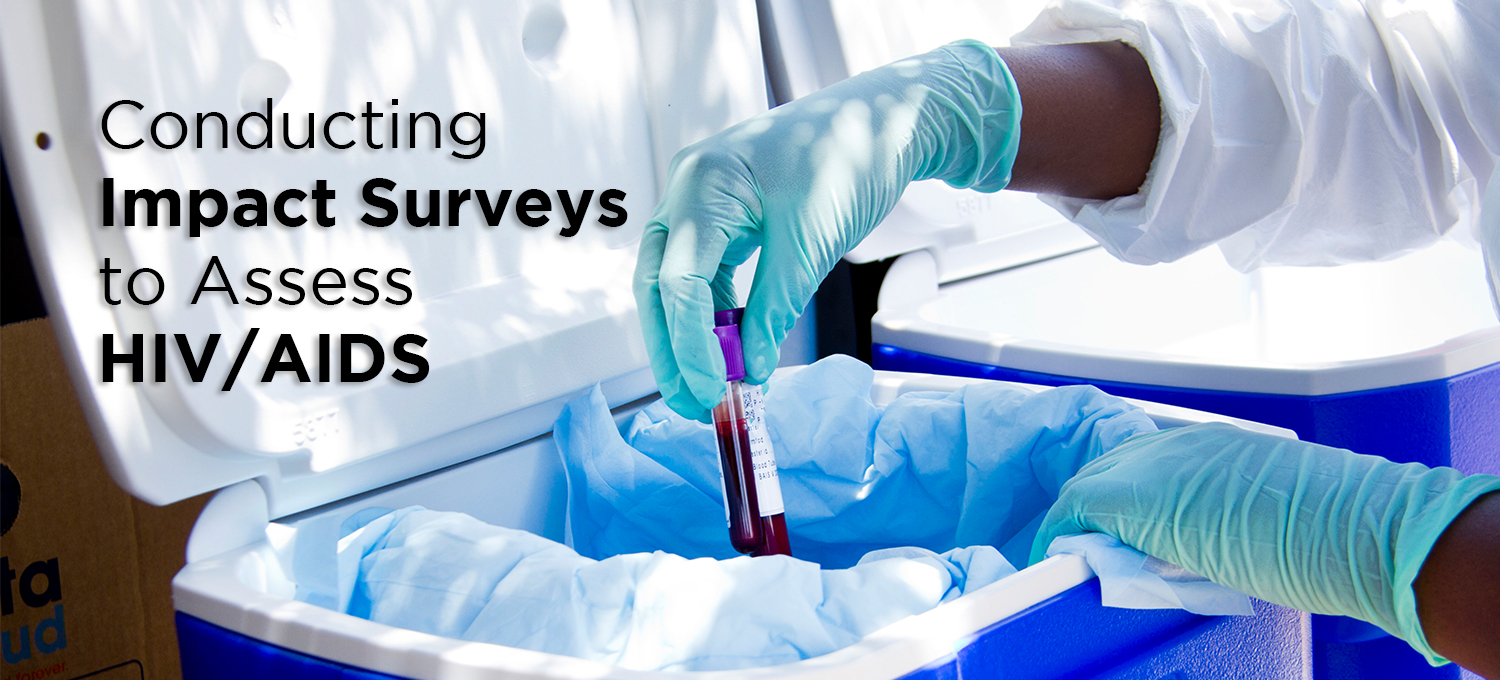COVID-19 Team Helps Steer BAIS V Survey Through Field Implementation in Botswana

The fifth Botswana HIV/AIDS Impact Survey (BAIS V) has successfully completed field implementation and demobilized from the field. All told, the survey reached more than 13,500 households with nearly 20,000 participants and completed more than 10,000 household interviews.
It will take several months to analyze the data, which is expected to provide a clear picture of the HIV/AIDS landscape in Botswana and identify where resources should be focused to bring the epidemic to an end.
BAIS V will provide accurate measures of prevalence of HIV and the coverage and impact of HIV services, as well as characterizing HIV-related risk behaviors using a nationally representative sample of children aged 6 weeks to 14 years and adults aged 15 years to 64 years. This PEPFAR-funded survey will help the Government of Botswana, its partners, and the public know how many people are currently infected with HIV, how many people have new infections, and how many people living with HIV are on effective treatment.
A Historic Initiative
The full story of BAIS V cannot be told without mentioning COVID-19. Originally slated to take place in 2020, BAIS V was paused at the onset of the pandemic and didn’t commence fieldwork until February 2021.
At the resumption of BAIS V, the project convened a small group of three to lead the COVID-19 response. Over the following months, this trio would lead a herculean effort to safeguard the health of staff and participants and allow the survey to proceed as safely as possible. This team consisted of Dr. Lillian Okui, an epidemiologist from Kumi, Uganda; Dr. Haruna Jibril, a clinical coordinator who is originally from Nigeria but now calls Kanye, Botswana home; and Mpho Zwinila, a data coordinator from Botswana.
Working as a Team
The three members of the COVID-19 team brought different strengths and expertise while filling different roles.
As an epidemiologist, Dr. Okui was responsible for analyzing the COVID-19 data and sharing that information weekly with colleagues at the Centers for Disease Control and Prevention, Ministry of Health and Wellness, and other partner institutions.
Dr. Jibril, a retired pediatrician, called on his medical background while coordinating all COVID activities. He was responsible for monitoring the daily symptoms screening dashboard and talking with any staff who were exhibiting COVID-19 symptoms or had tested positive. Dr. Jibril also oversaw all COVID testing and test results.
Zwinila, the data coordinator, had previously worked as a data monitoring and evaluation staff member for Botswana-Harvard AIDS Institute Partnership. She was responsible for monitoring staff who had entered quarantine or isolation and maintaining the COVID-19 data logs.
“The COVID-19 team worked really well together, shared ideas, and listened to each other,” Dr. Okui said.

Dr. Lillian Okui speaks at a training of trainers workshop.
COVID in Field Implementation
When the survey began field implementation, Botswana was just beginning its third wave of COVID-19, and this led to increases in community transmission and death.
“Our teams were heavily impacted by COVID,” Dr. Okui said. “At the end of the survey, only two teams had not had a single member of their team in quarantine or isolation. Having teams fall ill was some of our lowest moments as a COVID-19 team, but we are thankful we were able to support them, provide care for them, and provide mental health support for them.”
Throughout the survey, COVID-19 led to staff quarantine and isolation, creating capricious delays in field implementation. Because of COVID-19, the survey that was originally planned for 105 days took a total of 158.
From Dr. Jibril’s perspective, COVID-19 created challenges with human behavior. Staff members eager to get into the field sometimes disregarded their symptoms while filling out the symptoms screening app, for example. “We had to work very hard to make them understand it’s for their own safety and the safety of the whole survey to truthfully screen on the app,” Dr. Jibril said. In other instances, he said he tried to constantly remind and teach staff about the need for social distancing and masking despite natural human tendencies to interact.
Zwinila was a key part in circulating positive and consistent messaging about the need for daily COVID-19 screening and mitigation procedures. When people did fall ill or move into quarantine or isolation, Zwinila also kept them in the loop through WhatsApp reminders.
Reflections on the Survey
As teams demobilize and return to their homes across Botswana, the long-anticipated field work stage has finally drawn to a close. None of this would have been possible without the steady guidance of the three members of the COVID-19 team. They each will remember and take away different aspects of their experience.
Dr. Jibril, who retired as pediatrician in 2018, said he did not expect his medical expertise to come in hand. “I was in a position in this kind of huge survey to contribute to keeping people healthier and safe to perform the survey,” Dr. Jibril said. “I just hope at the end of the day, the little that I’ve been able to do has contributed to the success of the survey.”
From Zwinila: “Looking at this COVID pandemic, I want people to take care of themselves, of their families, of their friends. It was a wonderful team to work with. I really appreciated each and every one of them.”
When Dr. Okui remembers BAIS V, she will think about the extraordinary circumstances surrounding it and the monumental nature of this survey.
“We were given a second chance, and it happened during the era of COVID,” Dr. Okui said. “That we were able to achieve what we have in the middle of a pandemic is momentous.”


